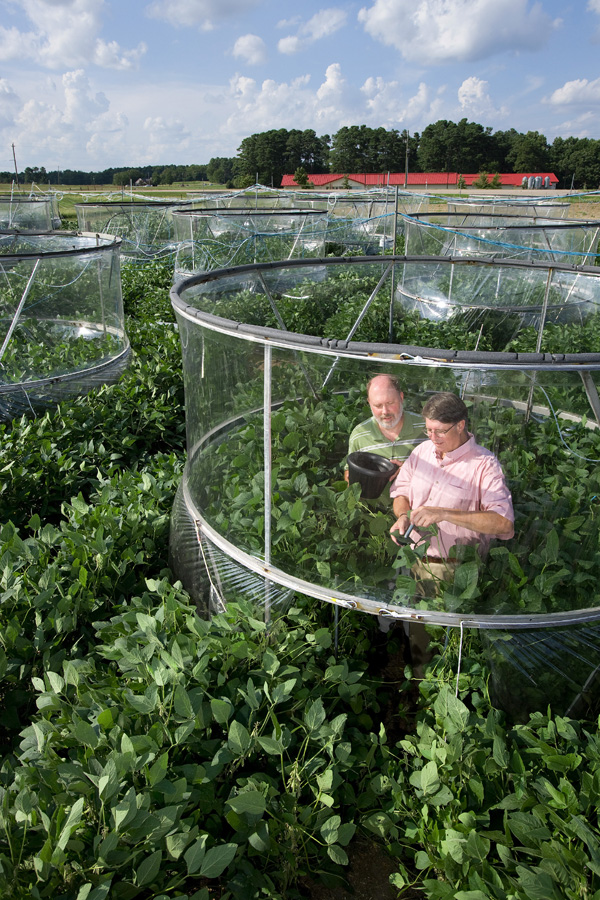| Kent Burkey |

|
|
ARS plant physiologist Kent Burkey and ARS geneticist Tommy Carter have found that Fiskeby soybeans from northern Sweden have outstanding tolerance for salt, high levels of ozone, drought, iron deficiency and commonly toxic levels of soil aluminum. Breeding Plants for a High-Ozone World |
One objective in my laboratory is to develop improved ozone tolerance in agricultural crops such as soybean and snap bean. Along with Tommy Carter and Jim Orf, a geneticist at the University of Minnesota, we have crossed ozone-tolerant Fiskeby III with ozone-susceptible Mandarin Ottawa soybean and developed 240 random inbred lines to identify potential genetic markers associated with ozone tolerance. The Swedish soybean appears to have pronounced resistance to other stresses, including drought, salt stress, aluminum and iron deficiency chlorosis. Understanding the ozone effect may be key to unraveling the secrets of the broad stress resistance of the Swedish soybean. With the help of funding from the United Soybean Board, the team is mapping the genes in these lines to see which are connected to resistance to ozone and the other stresses. We are also exposing soybean to elevated temperature, carbon dioxide and ozone levels that may be reached by the year 2050. The effects of future climate conditionss on soybean growth and yield are being investigated in order to improve understanding of potential climate change effects on agroecosystems. |
Soybean and Wheat Response to Climate Change |

